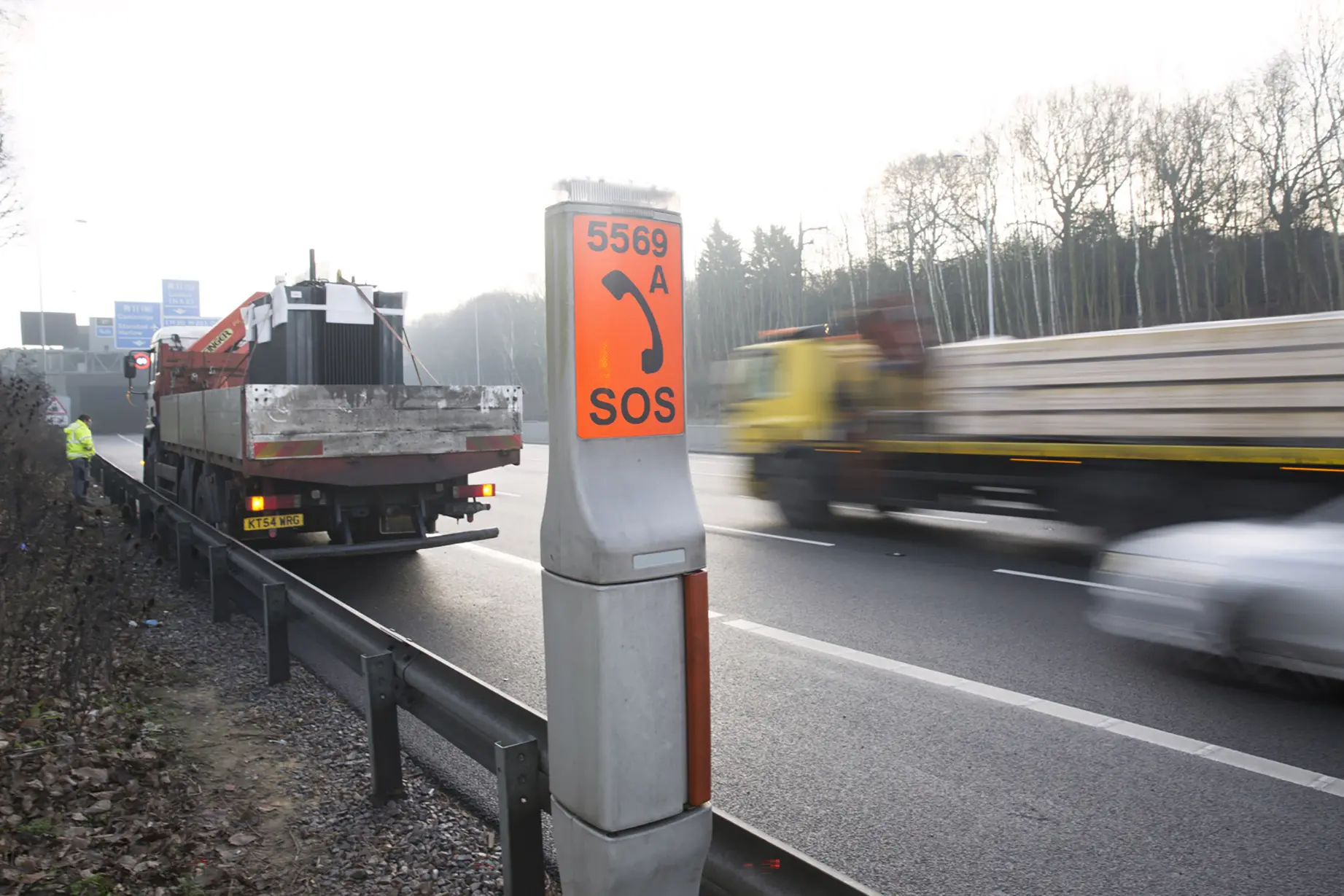
Van Driver Toolkit – Motorway Breakdowns
Did you know?
- More than four million journeys are made on the strategic road network each day. On average, Highways England record around 196,000 breakdowns per year (536 each day).
- The most common breakdowns are related to tyres, overheating, electrical problems and running out of fuel.
If your vehicle develops a problem or if you break down on the motorway:
- Put your LEFT indicators on.
- Move into the LEFT lane.
- Exit LEFT at the next junction/services, or
- Exit left into an emergency area or hardshoulder.
- Put your hazard lights on.
- Get behind a safety barrier and keep well away from moving
